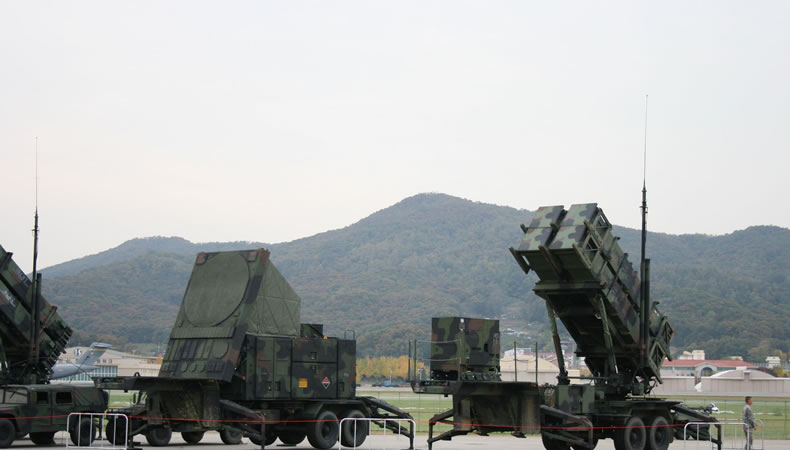For the First Time, an S-300 surface-to-air missile was fired at Israeli jets over Syria


Regardless of their formal status, it is unknown who runs the S-300 systems currently in Syria. It is well known that Russia controls, or at least used to control, the launch of missiles from ‘Syrian’ S-300 batteries in Syria. As a result, neither those batteries nor Russia’s S-400 and S-300 systems, which are stationed at its naval facility in Tartus and its Khmeimim Air Base in Latakia, have ever fired on incoming Israeli jets.
On May 16, Israel’s Channel 13 claimed that ‘Russian’ S-300 SAM batteries had launched missiles towards Israeli planes after bombing targets near Masyaf in Syria’s northwest. However, given Moscow’s direct supervision over their operation, the apparently Syrian S-300 systems are described in the outlet’s narrative as essentially Russian.
Related Posts
The Israeli Defense Forces have remained silent about the strikes, as is customary procedure. On May 13, Israeli F-16s fired 22 missiles at a ‘Syrian scientific research facility’ in the western Syrian city of Masyaf and the port of Baniyas, according to a statement from the Russian Ministry of Defense’s Russian Reconciliation Center for Syria.
The Israeli strikes in Syria last week were aimed to eliminate access to subterranean facilities, as well as Iranian arms shipments bound for extremists in Syria and Lebanon, as well as Iranian-backed weapons manufacturers and arms depots, according to the Jerusalem Post. Some of the targets had been struck by prior attacks in 2018, but had been rebuilt since then.
As previously said, it is unclear if the S-300 battery that allegedly fired on the Israeli planes belonged to Russian or Syrian forces, although this has never been a factor in the past. Syria’s S-300 systems have never fired on IAF aircraft, but nearly everything else in Syria’s aging air defense system has. A deconfliction system between Israeli and Russian military has been in existence since 2015 in response to the former’s operations in Syria. Israel gives Russia early notice of their operations, and SAMs under Russian control, at least until recently, did not engage the jets or their missiles. Tensions between Israel, Syria, and Russia have raised concerns about how long such a deal may endure.
Furthermore, despite Channel 13 reporting that S-300 missile batteries were launched at Israeli planes, the source stated that the missiles did not represent a threat to the flights and that there was no radar lock on the planes. It’s unclear if the missiles were fired ballistically, as is customary for Syrian air defenses, or if Israel’s famous electronic warfare technologies prevented the S-300 system from latching onto the planes.
The time of the firefight corresponds to Israel’s shifting stance on Russia’s invasion of Ukraine. After initially slowing down its help for Ukraine’s fight against the invading Russians, Israel has recently began sending some equipment to Ukrainian soldiers. Last month, Israeli officials allegedly attended a US-hosted session on military aid to Ukraine at Ramstein Air Base in Germany.
Since then, Israel has been involved in some of the war’s most strange incidents, such as condemning Russia’s proclaimed goal of ‘de-Nazification’ of Ukraine. Later, it attacked Russian Foreign Minister Sergey Lavrov’s public claim that Adolf Hitler was of Jewish origin, a long-held but completely unsupported conspiracy theory.
In the aftermath of a bizarre incident in which Syrian air defenders accidentally shot down one of Russia’s Il-20 Coot surveillance planes — killing all 15 Russians on board — after an Israeli airstrike against targets in the same vicinity along the Mediterranean coast as the recent attacks, Russia first announced it would hand over an unspecified number of S-300s to Syrian President Bashar Assad’s regime.
When announcing the missile delivery to Syria, Russian Defense Minister Sergei Shoigu stated that the S-300 system will have a maximum range of 124 miles, which is consistent with the PMU-2 model employing the 48N6E3 missile, which is Russia’s most sophisticated export version of the system.
The S-300 battery can reach the Mediterranean Sea and within Israeli territory thanks to its location in southern Syria, near the capital Damascus. It also includes Lebanese airspace, which the Israeli Air Force passes through on a regular basis before initiating operations inside Syria.
Although Israeli planes survived recent defense missile fire, they have suffered losses in the several raids inside Syria. In early 2018, an F-16 Sufa fighter was shot down, and more planes were damaged. Israel declared victory when the pilots made a mistake.
Although the S-300 systems pose a danger to Israel’s ability to reach Syrian airspace at any time, the IAF has devised tactics and technology to defeat them, particularly since they have also been deployed by arch-rival Iran. Training has taken place in Greece, which operates S-300 versions, and the United States, which has captured specimens to train against in order to fine-tune its tactics and countermeasures. Israel is a world leader in the field of aircraft electronic warfare.
Syria utilizing Russian missiles to shoot down an Israeli F-16, maybe under the leadership of Russian officials, would surely push the crisis in Syria to new heights. The pot-shot at Israeli fighters by an S-300 system, if it happened as claimed, was more likely a message to Israel that Russia can make their highly good situation over Syrian skies much less favorable if they choose. Given the current state of hostilities in Ukraine, such a signal should come as no surprise.

















